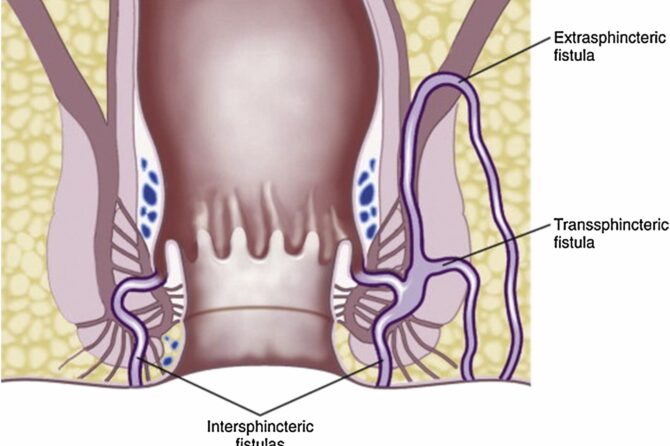
What Helps with Anal Fistula?
In the treatment of anal fistula, some methods that can be applied at home may provide temporary relief, but this condition usually requires medical intervention. Keeping the infected area clean regularly helps prevent the spread of infection. Warm sitz baths are an effective method for alleviating pain and discomfort in the anal area. These baths can be done three or four times a day, for about fifteen minutes each, increasing blood circulation in the anal region and supporting the healing process. Additionally, pain relievers and anti-inflammatory drugs can also help reduce pain and swelling associated with the fistula.
For the fistula itself, consuming fiber-rich foods and drinking plenty of water can reduce straining during bowel movements, preventing the worsening of symptoms. However, these measures only alleviate symptoms and do not resolve the underlying problem. Surgical intervention is often required in the treatment of anal fistulas, thus home treatments should aim to support medical treatment.
How to Relieve Pain from an Anal Fistula?
Managing pain from an anal fistula is usually possible by controlling the infection and reducing inflammation. Over-the-counter nonsteroidal anti-inflammatory drugs (NSAIDs) can temporarily alleviate pain and inflammation. Taking a sitz bath can also soothe the anal area and reduce pain. Applying cold compresses can be effective in reducing swelling and pain, but it is important to keep the area dry after each application.
Applying hot or cold compresses to the affected area, pain relievers, and maintaining proper hygiene can help alleviate discomfort, but these methods do not offer a permanent solution. Surgical methods are the most effective solution for treating an anal fistula, so it is necessary to consult a health professional if you experience severe or persistent pain.
Does an Anal Fistula Heal Itself?
Anal fistulas generally do not heal by themselves and require medical intervention for effective treatment. Fistulas are channels that create an abnormal connection in the body and often lead to infections. These structures do not close with the body’s natural healing processes and usually need to be treated surgically. If left to heal on their own, the fistula can become chronic and lead to more serious health issues like recurring infections.
Untreated anal fistulas can cause symptoms like pain, discomfort, and continuous discharge. They can also lead to further damage to the tissues around the fistula and potentially life-threatening infections. Therefore, it is important to seek medical treatment immediately if symptoms of an anal fistula are noticed.
Do Not Delay Treatment for an Anal Fistula!
Delaying treatment for an anal fistula not only increases pain and discomfort but also raises the risk of spreading the infection. Early treatment reduces the risk of complications and can accelerate the overall healing process. Surgical intervention is the most effective way to completely resolve a fistula and prevent recurring infections. Untreated fistulas can lead to serious health problems and long-term discomfort.
Treatment of a fistula requires more than just symptom relief; it also involves eliminating the source of the infection and the channel to prevent recurrence. Therefore, anyone experiencing symptoms of an anal fistula should seek timely medical help for lasting relief and health improvement. Delaying treatment only complicates the healing process and negatively affects the patient’s quality of life.
Leave a reply
Leave a reply